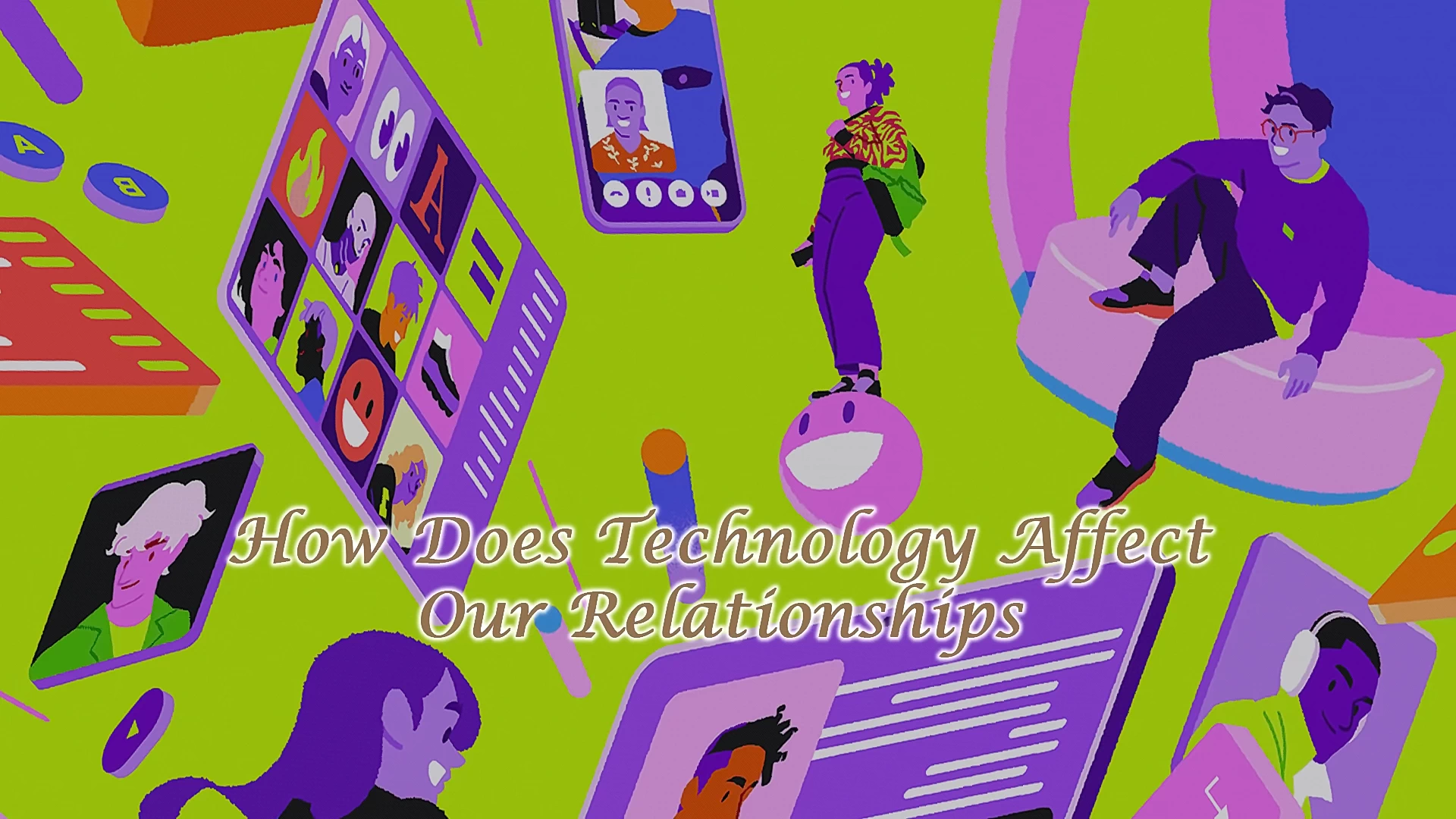How Does Technology Affect Our Relationships: Navigating the Digital Age
In our ever-evolving digital landscape, technology has become an integral part of our daily lives, profoundly influencing the way we interact and form relationships. From social media platforms to messaging apps, technological advancements have transformed the dynamics of human connections. But how does technology affect our relationships, and what implications does this hold for our personal and social well-being?
The Role of Technology in Shaping Relationships
Technology has revolutionized the way we initiate, nurture, and sustain relationships. With the rise of social networking sites like Facebook, Instagram, and Twitter, individuals can connect with others across the globe instantly. These platforms have facilitated the formation of virtual communities, allowing people with shared interests or backgrounds to come together and bond over mutual experiences.
However, while technology offers unprecedented opportunities for connectivity, it also presents challenges to the quality of our relationships. One of the primary concerns is the impact of excessive screen time on face-to-face interactions. With smartphones and other devices constantly vying for our attention, meaningful conversations and genuine connections can often take a backseat to virtual distractions.
The Paradox of Connectivity and Isolation
In today’s hyper-connected world, it’s paradoxically easy to feel isolated despite being constantly surrounded by digital communication tools. While technology enables us to stay in touch with friends and family members across vast distances, it can also breed feelings of loneliness and detachment. This paradox highlights the importance of striking a balance between online and offline interactions to foster genuine human connections.
Moreover, the prevalence of social media has given rise to new forms of relationship dynamics, such as online friendships and virtual romances. While these digital connections can be fulfilling in their own right, they may also lack the depth and intimacy of face-to-face relationships. Navigating the blurred boundaries between online and offline interactions requires careful consideration of how technology shapes our perceptions of intimacy and connection.
Communication in the Digital Age
Communication lies at the heart of any healthy relationship, and technology has transformed the way we exchange messages and share experiences. Texting, emailing, and video calling have made communication more convenient and accessible than ever before, allowing individuals to stay connected regardless of geographical barriers.
However, the convenience of digital communication comes with its own set of challenges. Misinterpretation of tone and context is common in text-based interactions, leading to misunderstandings and conflicts. Moreover, the constant barrage of notifications and messages can create a sense of overwhelm, making it difficult to prioritize meaningful conversations.
To mitigate these challenges, it’s essential to approach digital communication mindfully and with intention. Setting boundaries around device usage, practicing active listening, and being mindful of tone and context can help foster healthier and more authentic connections in the digital age.

The Impact on Intimacy and Trust
Intimacy and trust are fundamental pillars of any successful relationship, yet technology has introduced new complexities to these dynamics. Social media platforms provide a window into the lives of others, allowing us to share our thoughts, experiences, and emotions with a global audience. While this level of transparency can foster intimacy and closeness, it can also blur the boundaries between public and private spheres.
Moreover, the rise of online dating apps has revolutionized the way we form romantic connections, offering unprecedented opportunities to meet potential partners based on shared interests and preferences. However, the anonymity and superficiality of these platforms can also erode trust and authenticity, leading to skepticism and disillusionment.
Navigating the complexities of intimacy and trust in the digital age requires open communication, honesty, and vulnerability. Building strong foundations of mutual respect and understanding can help mitigate the pitfalls of technology and cultivate deeper, more meaningful relationships.
Strategies for Maintaining Healthy Connections
Despite the challenges posed by technology, there are steps we can take to foster healthy relationships in the digital age. Here are some strategies to consider:
- Set boundaries around device usage to prioritize face-to-face interactions and quality time with loved ones.
- Practice active listening and empathy in digital communication to foster understanding and connection.
- Be mindful of the impact of social media on self-esteem and mental health, and cultivate a healthy relationship with technology.
- Prioritize authenticity and vulnerability in relationships, both online and offline, to build trust and intimacy.
- Seek support from friends, family members, or mental health professionals if technology-related issues are affecting your well-being.
And so
In conclusion, technology has profoundly influenced the way we form, nurture, and maintain relationships in the digital age. While it offers unprecedented opportunities for connectivity and communication, it also presents challenges to the quality of our connections. By approaching technology mindfully and with intention, we can navigate these challenges and cultivate deeper, more meaningful relationships in an increasingly interconnected world.




Omg, new technologi its cool but not all
I appreciate the practical strategies provided for maintaining healthy relationships amidst the onslaught of technology.
As someone who’s felt the tug-of-war between staying connected online and maintaining genuine connections offline, these insights are invaluable.
This article perfectly encapsulates the complexities of relationships in the digital age.
Pingback: Would You Like To Do a Digital Detox - Magazine4You